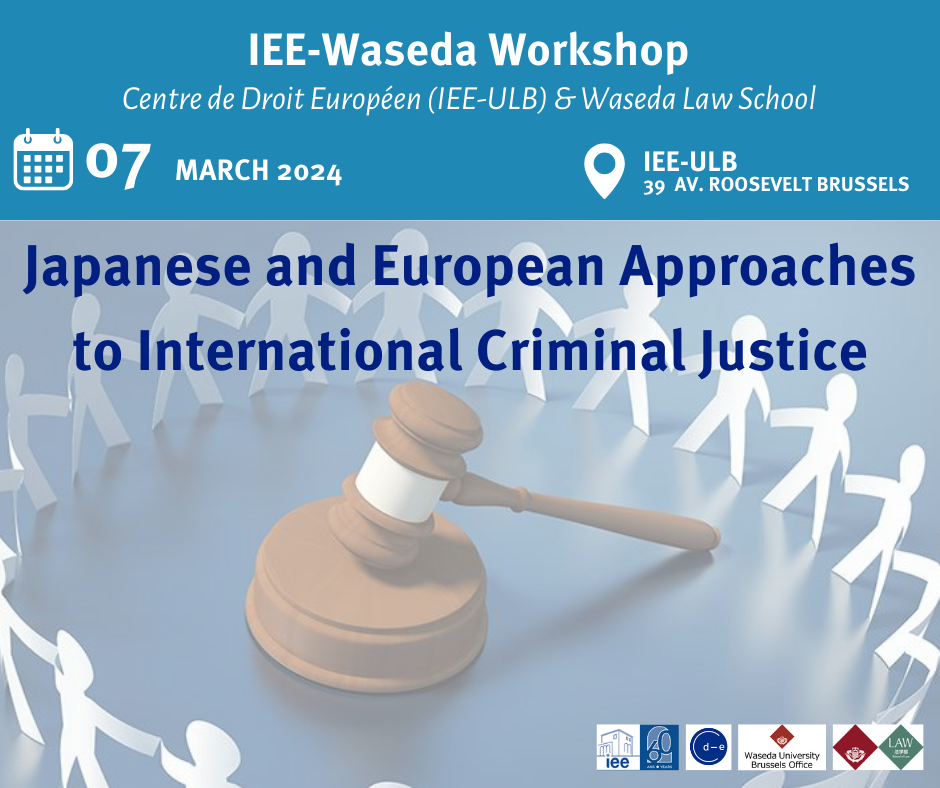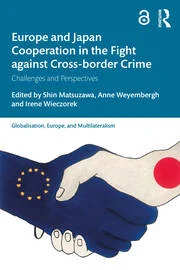A day-long workshop in Brussels on March 7th led by Professors Anne Weyembergh and Chloé Brière from the Center of European Law at the Institut d’études Européennes of the ULB, on the one hand; and Professor Shuichi Furuya from Waseda Law School, on the other.
Agenda
The workshop builds on previous work, notably the 2022 publication of the Routledge book “Europe and Japan Cooperation in the Fight against Cross-border Crime: Challenges and Perspectives“ co-edited by professors A. Weyembergh (IEE-ULB) & S. Mattsuzawa (Waseda) & I. Wieczorek (Durham) to further the shared research on Japanese and European approaches to, and cooperation in international criminal justice. With this in mind, the workshop will explore both “Comparative and Collaborative Approaches to Serious and Organized Crimes” and “Comparative and Collaborative Approaches to International Core Crimes“
International criminal justice is an active field of international cooperation. States actively negotiate, conclude, and implement international agreements to facilitate the prosecution of international core crimes by specialized tribunals and courts, such as the International Criminal Court. Concomitantly, States also intensely cooperated to combat transnational serious crimes, especially those committed by organized criminal groups.
European countries and Japan have been particularly engaged in these international initiatives. Since the early 1990s, the EU has emerged as a key actor, often in concert with either regional or global initiatives, as well as in support of bilateral partnerships with non-EU countries. Japan is also a driving force behind international efforts to ensure accountability. It is for example not only party to the Rome Statute, but also the highest single contributor to the ICC. It is also one of the few countries that agreed to conclude a bilateral treaty on mutual legal assistance with the EU, opening doors for closer cooperation in criminal matters. If Europeans and Japanese have been particularly engaged, they have nonetheless maintained distinct approaches
Format
This legal workshop on “European and Japanese Approaches to International Criminal Justice” is coordinated by the Institut d’études européennes (IEE) of the Université libre de Bruxelles (ULB) as part of its ongoing cooperation with the Waseda Law School. The workshop’s academic co-chairs are Anne Weyembergh (IEE-ULB) and Suichi Furuya (Waseda School of Law).
The workshop will include two roundtables which are scheduled to feed into an ongoing book project exploring new perspectives on European and Japanese approaches to international criminal justice. Contributors are invited to conduct a transversal analysis examining the respective positions of the EU and Japan towards international criminal justice, and how the two partners build on their existing collaboration to promote international criminal justice. Exchanges are to help pinpoint similarities and/or divergences in the respective approaches. Singularly, all contributions are jointly written by EU- and Japan-based scholars thus combining their expertise.
This is a scientific workshop aimed mainly at graduate students, early-stage researchers, or academics interested in the ongoing or nascent work scheduled to be presented across the workshop’s 5 panels.
Interested parties are welcome to register
Registration

